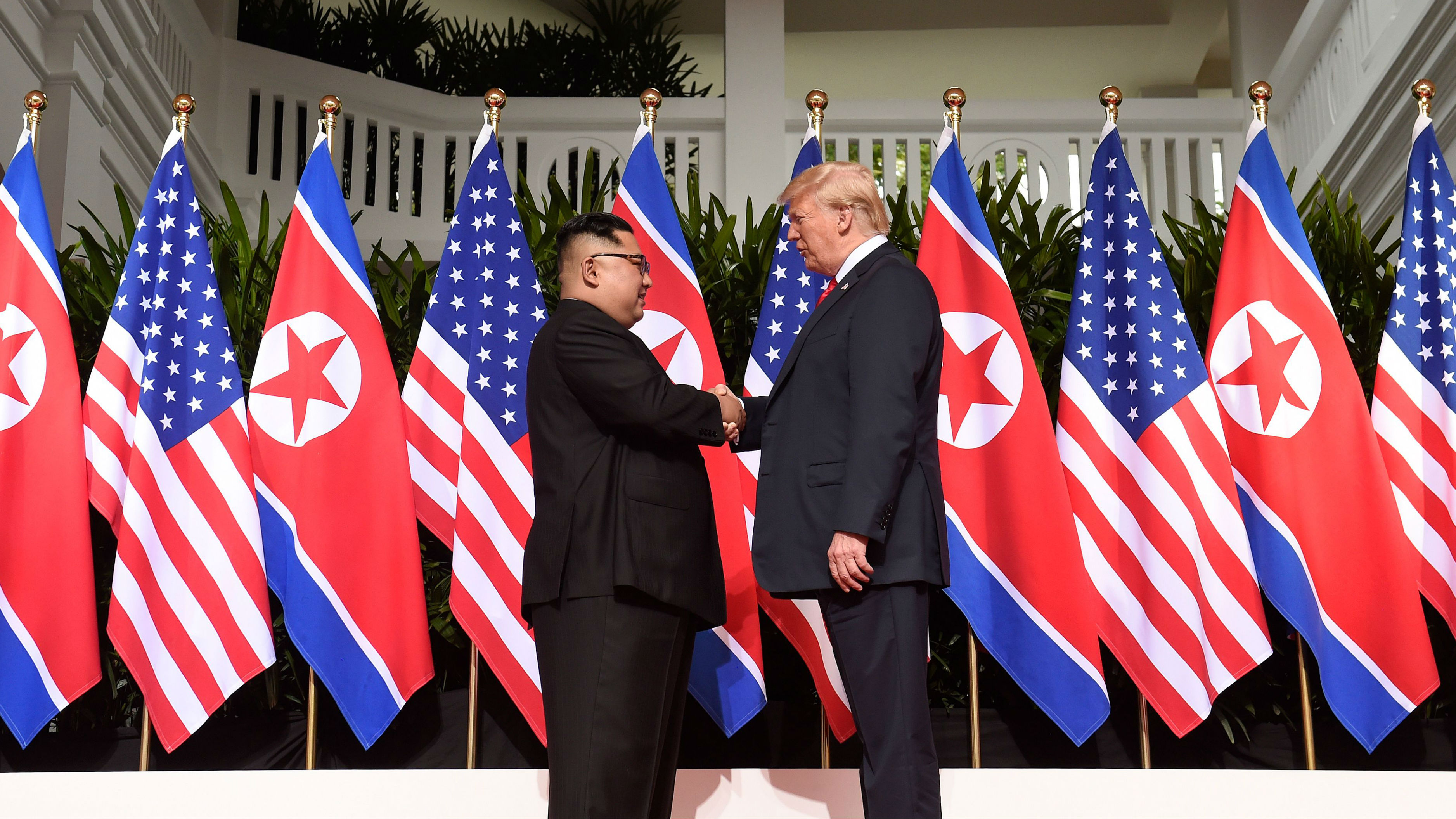How big a threat is North Korea?
Trump claims US would be at war with the hermit kingdom if he was not president

A free daily email with the biggest news stories of the day – and the best features from TheWeek.com
You are now subscribed
Your newsletter sign-up was successful
Donald Trump is to hold a second nuclear summit with North Korean leader Kim Jong Un at the end of this month.
The US president used his State of the Union address on Tuesday to announce the meeting, which will take place in Vietnam on 27 and 28 February.
The scheduled talks follow what was the first ever meeting between a US president and North Korean leader last June in Singapore, where there were “warm handshakes and grins but few specific results”, says The Washington Post.
The Week
Escape your echo chamber. Get the facts behind the news, plus analysis from multiple perspectives.

Sign up for The Week's Free Newsletters
From our morning news briefing to a weekly Good News Newsletter, get the best of The Week delivered directly to your inbox.
From our morning news briefing to a weekly Good News Newsletter, get the best of The Week delivered directly to your inbox.
What does Trump hope to achieve this time?
The president says he is continuing a “historic push for peace on the Korean Peninsula”.
But he will have to extract a written pledge from Kim promising to curb North Korea nuclear’s weapons programme - “otherwise these summits will be seen as all show and very little substance”, says the BBC’s Seoul correspondent Laura Bicker.
How big a threat is North Korea?
A free daily email with the biggest news stories of the day – and the best features from TheWeek.com
Despite being among the poorest countries in the world, North Korea has one of the largest conventional military forces, and has previously tested a series of different nuclear missiles.
Trump has repeatedly pointed out that missile testing has stopped since the June summit. Yesterday, he even claimed: “If I had not been elected president of the United States, we would right now, in my opinion, be in a major war with North Korea.”
However, nuclear disarmament has not materialised. In a Worldwide Threat Assessment released on 29 January, the US Intelligence Community concluded that Pyongyang views “nuclear arms as critical to regime survival” and is therefore “unlikely to give up all of its weapon of mass destruction (WMD) stockpiles, delivery systems, and production capabilities”.
US officials say Kim is still working on missile and weapons programmes, including manufacturing new intercontinental ballistic missiles at a facility near the capital, reports The New York Times.
Jeffrey Lewis, an arms control expert at the Middlebury Institute of International Studies at Monterey, in California, told the newspaper that the two countries had different conceptions about the term “denuclearisation”. The Trump administration sees it as the elimination of the nuclear arsenal, while North Korea sees it as reducing the role that nuclear weapons play, according to Lewis.
“[North Korea] want the Israel deal - they will talk about them less, and we pretend they don’t exist,” he added.
So is a pre-emptive war over North Korea likely?
“Not really,” says The Washington Post.
“Strategic theory suggests that if you really think the adversary is about to attack, and you really think there is an advantage to attacking first, then preemptive war becomes more attractive,” explains the newspaper.
“Happily, neither condition exists between the United States and North Korea. Most importantly, neither side is likely to pre-empt because neither side really thinks the other will attack first.”